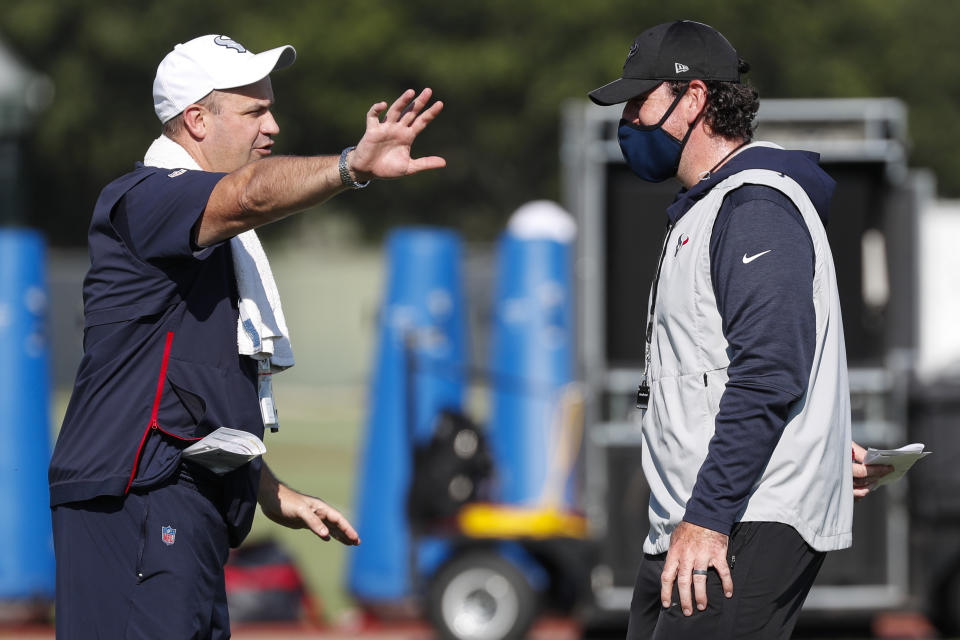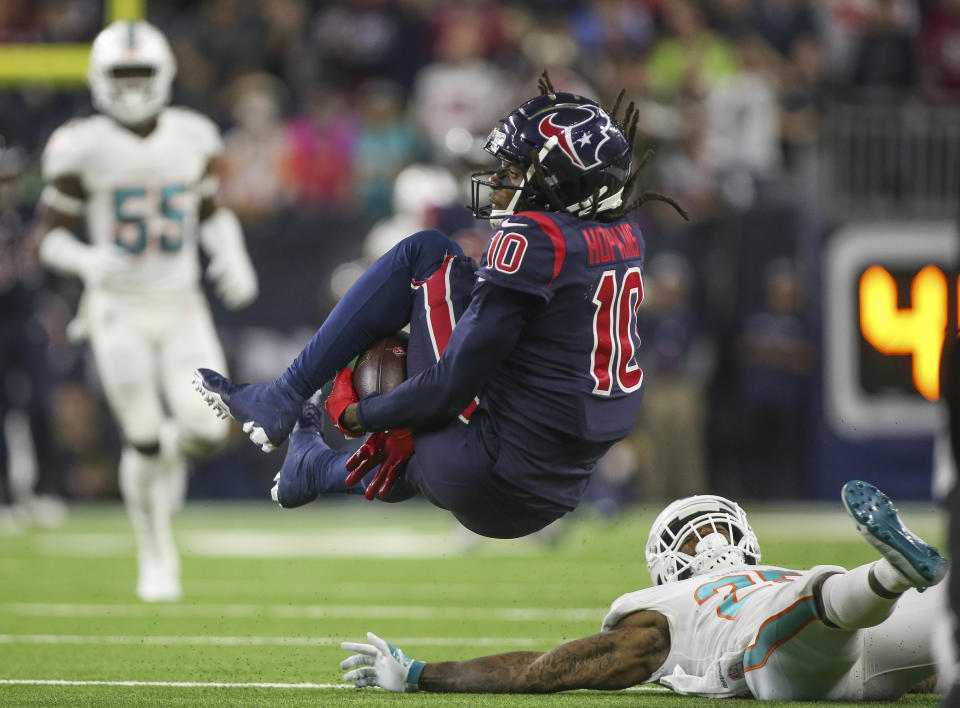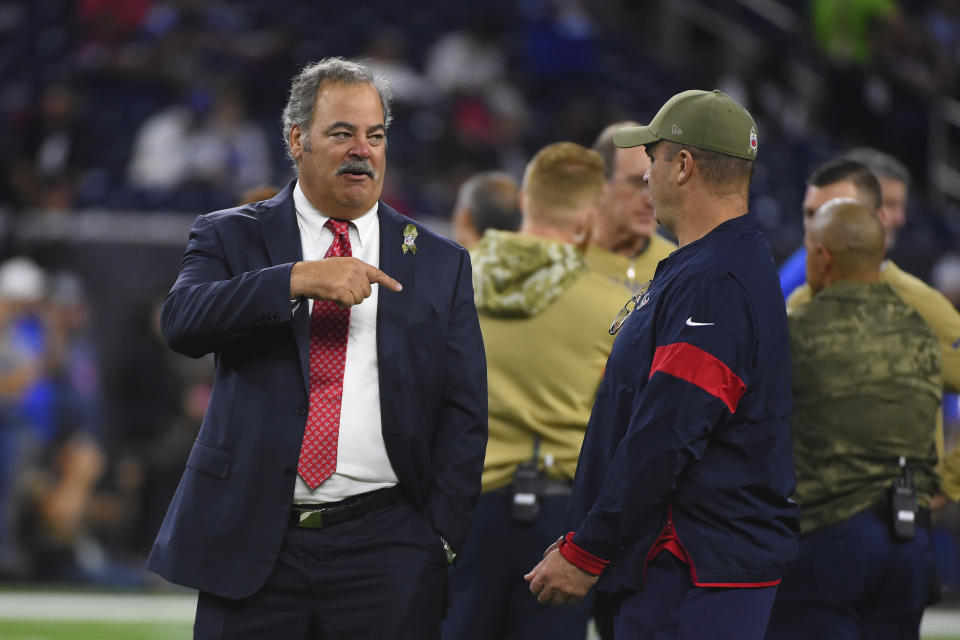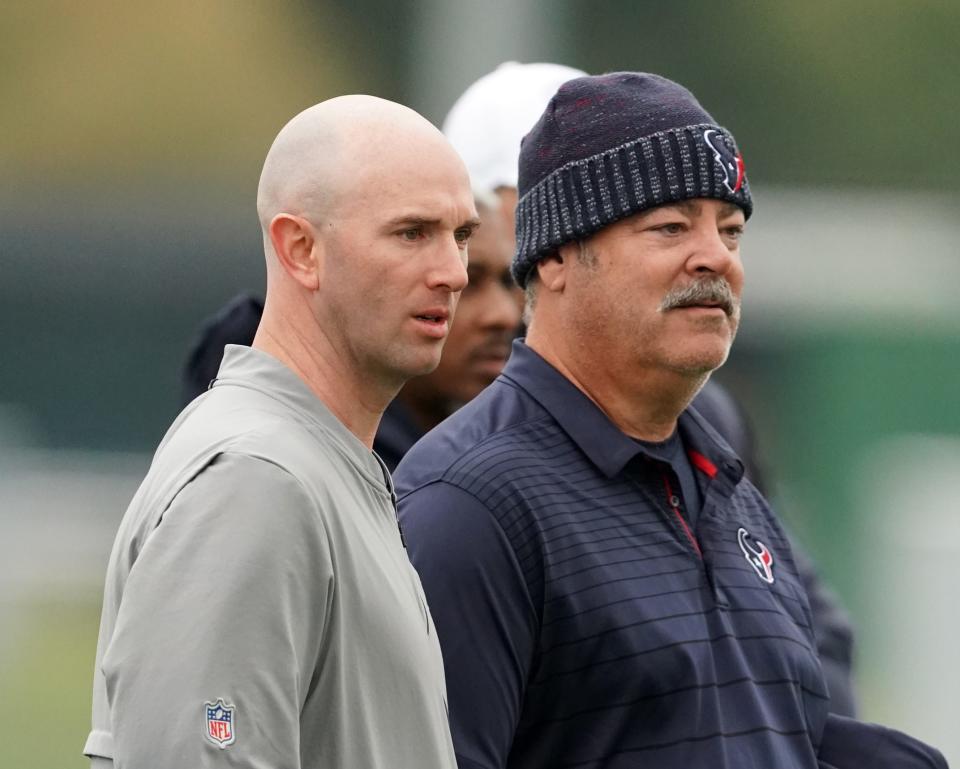4 lessons the Texans need to learn from the Bill O’Brien era

The 2021 NFL year kicks off in March. After a horrific 4-12 season, the Houston Texans are facing an off-season that is bound to be full of change. New general manager Nick Caserio and coach David Culley represent a balance of power that is a far cry from the pseudo-dictatorship a year ago in the front office. They will have plenty of work to do in order to turn around what is easily one of the most expensive and least talented rosters in the league.
Quarterback Deshaun Watson has demanded a trade and is adamant about finding a new team as Houston is that they won’t trade him. J.J. Watt is out the door and set to sign somewhere else while emergent alpha-receiver Will Fuller is also set to be a free agent. Even if Fuller and Watson are convinced to return, there is going to be a very different vibe in the franchise compared to the tone of 2020.
With that said, history is important. George Santayana said “those who don’t learn from history are condemned to repeat it.” The Houston Texans certainly made a history textbook’s worth of errors during the O’Brien era. Here are four key takeaways Caserio and Culley must avoid.
1. Allow individuals to do what they are hired to do

(Brett Coomer/Houston Chronicle via AP, Pool)
NFL front offices and coaching staffs are comprised of a myriad of individuals for a reason. The diversity of opinion, knowledge and talent allows the collective team to tackle challenges that are too big for any individual alone. During the O’Brien era, we all too often saw the coach put too much responsibility on his own shoulders. O’Brien was quick to take over as the acting general manager and play-caller in addition to his coaching duties. His collective duties were a huge part of why he failed to achieve at a high level at any three of those things. The O’Brien tenure was full of deadbeat offenses that were wherein George Godsey and Tim Kelly wore the face of O'Brien's stale schemes. Outside of Bill Belichick, you rarely see anyone succeed with this much power in the NFL, the operation is just too complex. One of the biggest reasons Culley was hired following the O'Brien era is that he is considered someone who will be excellent at delegating responsibility. Kelly has been retained to run the offense and Lovie Smith, the former coach of the Chicago Bears and Tampa Bay Buccaneers, is more than capable of taking care of the defensive side of the ball. Giving those two space to do what they do best, even if they start slow, will allow Culley to be the best possible coach that he can be. On the front office side, Caserio should be in full command of football personnel and operations. His scouting team and staff should be making decisions independent of any owner influence, coaching favorites, or input from the character development team. These guys are receiving paychecks for a reason. Let them do their jobs.
2. Acknowledge that talent matters

Troy Taormina-USA TODAY Sports
In 2018, the Texans employed receiver Deandre Hopkins, defensive back, Kareem Jackson, Tyrann Mathieu, edge defender Jadeveon Clowney and defensive tackle D.J. Reader. There was a great depth of talent on both sides of the ball that could compete with any team in the league. Unfortunately, following the firing of general manager Brian Gaine, the organization seemed to forget the importance of employing good football players. There seemed to be an assumption that, because the roster was good, it would stay good regardless of pieces changed. As it stands in 2021, the Texans are one of the most talent depleted rosters in the league. All of those players were lost, either allowed to walk in free agency or traded for pennies on the dollar. That trend absolutely cannot continue as the Texans enter a new era. An absolute premium needs to be placed on talent, where the organization pays their own and rewards great football play. “Good guys” and “versatile players” once emphasized as important by O’Brien led to Eric Murray being burned time and time again on one of the worst defenses in NFL history. Even if Culley is the best coach in NFL history somehow, he will need talent if he wants to win.
3. ‘The ends’ do not always justify ‘the means’

(AP Photo/Eric Christian Smith)
This point is a bit nuanced, so, let’s extrapolate. Houston cannot be satisfied moving forward by an outcome if the process to get there was poor. Bad decision-making and plans should not be rewarded because they happen to land on a reasonable outcome. This is best explained through example. In 2019, the Texans won 10 games and made it to the divisional playoff round. By all accounts, that’s a perfectly fine season, one where Houston finished better off than 80% of the NFL. However, that loss in the divisional round was one where the team once led 24-0 and lost 51-31. That type of loss, from a team that employs Watson at quarterback, is unacceptable. This came after a goofy game from Josh Allen and a miracle play from Watson had gifted them a wild card win, O’Brien should have faced significant pressure to make changes to his staff (no, demoting Romeo Crennel doesn’t count) or even have been fired. The end result was tolerable, two wins away from the Super Bowl, but the process exposed that they weren’t trending the right way. Another example of this would be in player personnel. Deciding that Clowney isn’t worth $15 million or Hopkins isn’t worth $25 million are perfectly fine moves. Lots of good teams won’t prioritize edge rushers that don’t produce sacks or receivers that are largely replaceable (see: Steelers, Pittsburgh.) However, the process by which they were lost is unacceptable. The returns Houston received and how they played the market were crippling for the roster and widely seen as poor trade packages for players as talented as Clowney and Hopkins. It is important to celebrate good results as a football franchise. However, bad decision making will always rear its ugly head eventually. Houston should be more critical of their own process, even if it yields the results they want. This leads beautifully to the final lesson from the O’Brien era.
4. Beware of Jack Easterby

Kirby Lee-USA TODAY Sports
Even if Watson is somehow placated, convinced to stay, and the Texans win 10-plus games in 2021 they should not be trusted for the reasons outlined above. Their process is severely flawed. The Texans are currently run by one of the most notorious and toxic front office figures in the entire NFL right now. Easterby, originally hired as an executive vice president of team development, has won a power battle that many would argue places him only behind CEO Cal McNair in his influence over the organization. It has been well documented who has coincidentally left since Easterby's arrival, and that was just from November of 2020. Even if it is just a coincidence — merely bad luck, like Fuller's availability issues — the Texans are at risk of becoming a joke of a franchise after establishing themselves as perennial winners during the past decade. McNair clearly trusts the executive vice president of football operations and that is his prerogative. However, looking at the established and tenured names that have been lost during the Easterby regime, and the host of current and former players speaking out against him, the warning signs are all there. The Texans can keep Easterby, but they must certainly be aware that he is a danger to their success.
1
1

